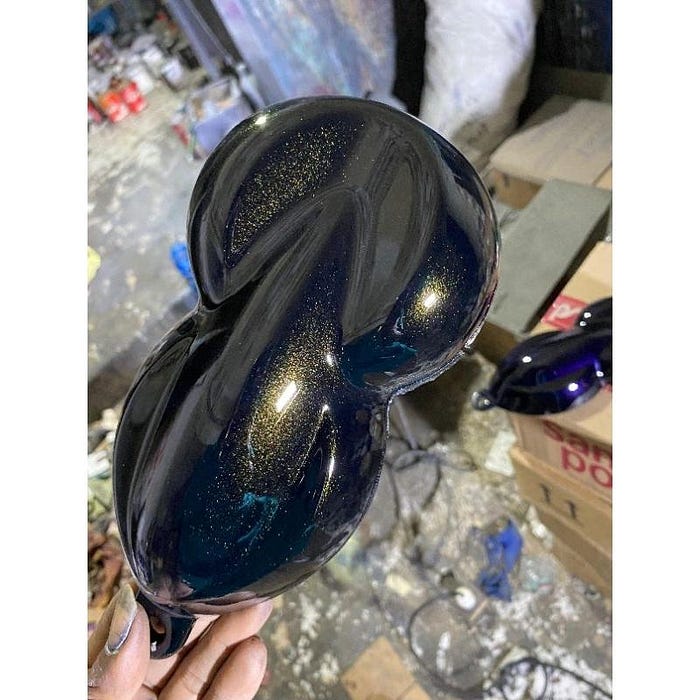The year 1648 was notable as the French Royal Academy of Art (Académie Royale de Peinture et de Sculpture) was founded in Paris. French artists would now have uniform training and the Royal State would be able to control art production. As Ludwig states in his essay on Still-Life Painting in the Eighteenth Century:

Jean-Baptiste-Siméon Chardin, The Ray, 1728, The Louvre
Excellence in French art was seen as reflecting on the magnificence of King Louis XIV. In 1737 the Annual Salon was established at the Academy and the work of artists was now viewed by the public on a regular basis.
In the Royal Academy a strict hierarchy of subject matter was created, most important was history painting which helped promote the state, still-life was referred to as “dead nature”; the least significant category. The still-life was considered the art of copying, not an intellectual art.
As the Enlightenment flourished in Europe, the importance of reason was spread by scientists and writers, such as Voltaire and Diderot. Inspired by new ideas of rationalism and order, themes in painting shifted toward a greater simplicity in both technique and subject matter. Chardin was accepted into the Academy in 1728 and during his career he became well known for his still-lives. He also adopted a rational approach to the use of color and paint and applied a minimalist style to his work, influenced by ideas from this time. Rather than showing every detail of objects, Chardin painted in a way such as to capture the essence of them. As the writer and art critic Diderot said of Chardin:
“Oh Chardin! It is not white, red or black that you grind on your palette: it is the very substance of your subjects: it is air and light that you dip your brush into and transfer and attach to the canvas.”[2]
In the Royal Academy a strict hierarchy of subject matter was created, most important was history painting which helped promote the state, still-life was referred to as “dead nature”; the least significant category. The still-life was considered the art of copying, not an intellectual art.
As the Enlightenment flourished in Europe, the importance of reason was spread by scientists and writers, such as Voltaire and Diderot. Inspired by new ideas of rationalism and order, themes in painting shifted toward a greater simplicity in both technique and subject matter. Chardin was accepted into the Academy in 1728 and during his career he became well known for his still-lives. He also adopted a rational approach to the use of color and paint and applied a minimalist style to his work, influenced by ideas from this time. Rather than showing every detail of objects, Chardin painted in a way such as to capture the essence of them. As the writer and art critic Diderot said of Chardin:
“Oh Chardin! It is not white, red or black that you grind on your palette: it is the very substance of your subjects: it is air and light that you dip your brush into and transfer and attach to the canvas.”[2]
Chardin’s work was highly praised and he influenced an entire generation of painters.
One such painter was Anne Vallayer-Coster. She was admitted into the Royal Academy in 1770 based on the strength of her still-lives and was one of only four women admitted in the 18th century. Her work attracted the attention of Marie-Antoinette and she became one of the painters of the royal court. Women had been long excluded from this profession, but talented artists such as Vallayer-Coster found success within the still-life genre.
Anne Vallayer-Coster, Still-Life with Tuft of Marine Plants, Shells and Corals, 1769, Louvre
Chardin, The Attributes of the Arts and their Rewards, 1766, Minneapolis Institute of Arts
The new importance of artists in France at the time was reflected in another still-life by Chardin, The Attributes of the Arts and their Rewards. This was painted in honor of his friend the sculptor Pigalle, the first sculptor to win the highest award from the Order of St. Michael. This work is an allegory of the arts which symbolized that being an artist was a learned and noble profession, and one that contributed greatly toward the French culture in the 18th century.
[1] Heidrun Ludwig. Still-Life Painting in the Eighteenth Century. Sander, Jochen. ed. The Magic of Things: Still Life Painting 1500-1800, page 337
[2] Tuchman, Phyllis, The Quiet Master of Jean Simeon Chardin, 5.
Bibliography/suggested further reading-
Tuchman, Phyllis. The Quiet Master of Jean Simeon Chardin. Smithsonian Magazine, June 2000.


.jpg)


